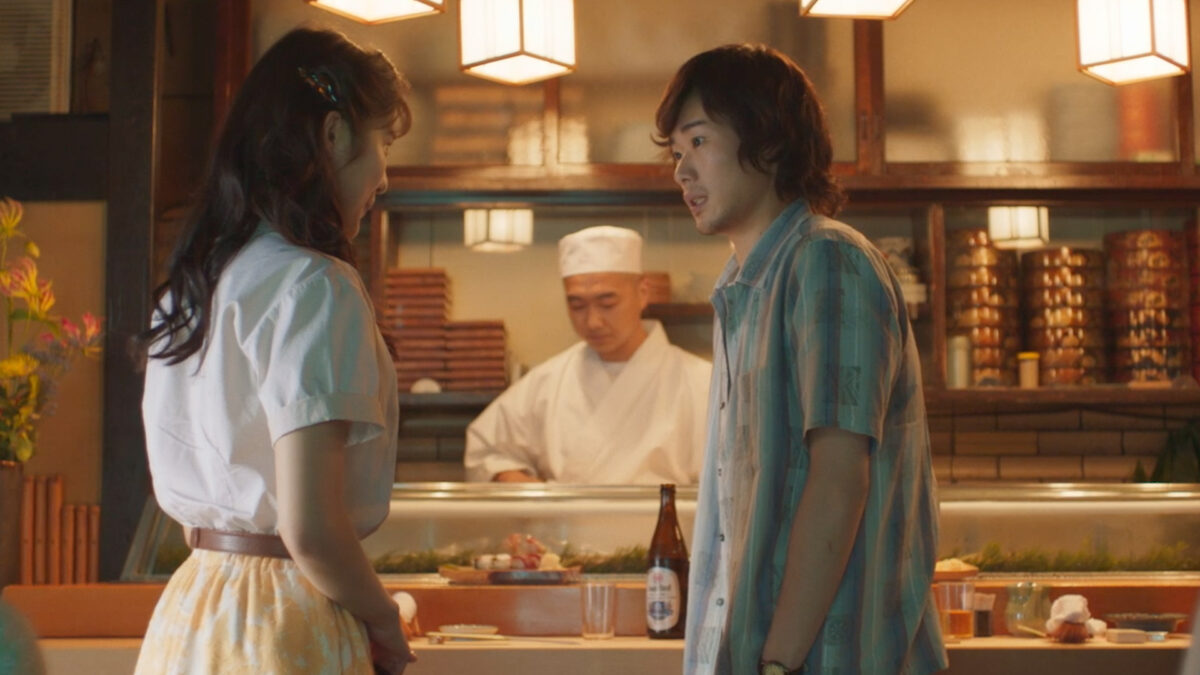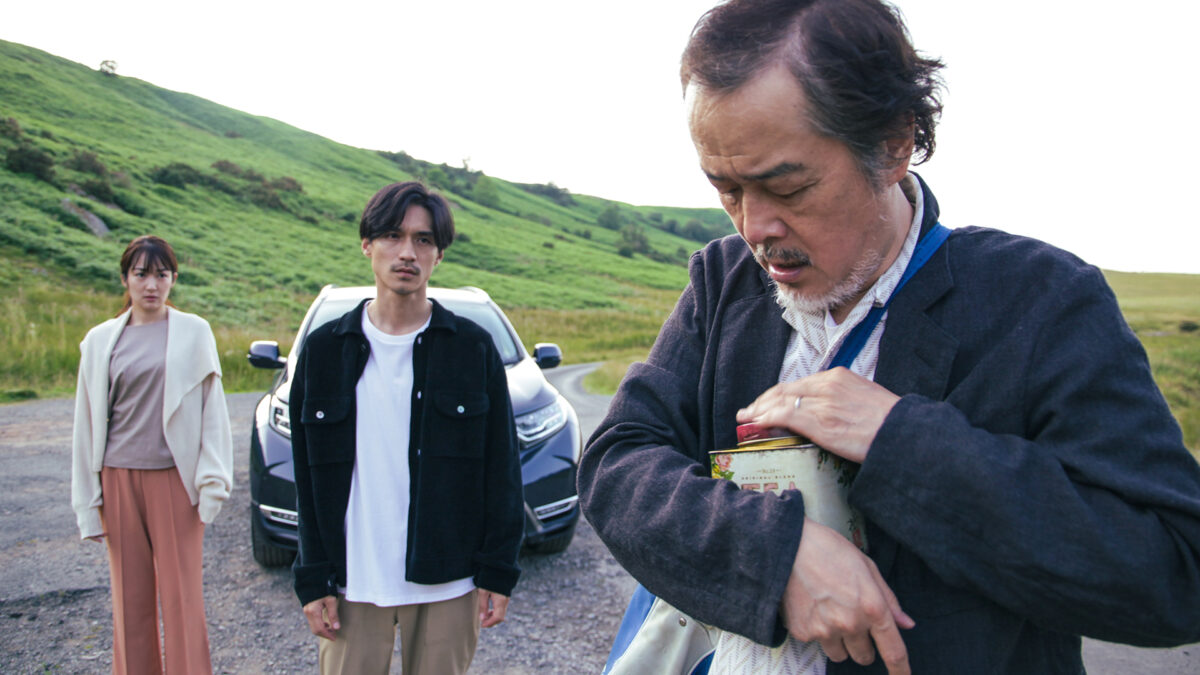“Cottontail” – a dead wife’s last request
film review by Bondo Wyszpolski
Although “Cottontail” is written and directed by an Englishman, Patrick Dickinson, it has a Japanese sensibility, and not just because the first half of the film (Dickinson’s first full-length feature) is set in Tokyo with Japanese actors.
As a child, Dickinson was exposed to foreign films by his late mother, and apparently Japanese films in particular (Ozu, if seems, chief among them). This led him to study the Japanese language, which he continued while in Japan. That was how he acquired, or at least came to understand, the Japanese mindset or sensibility.
“Cottontail” begins with a ragged-looking Kenzaburo (Lily Franky, an actor who has starred in films by Hirokazu Kore-eda, among others) stealing a packet of fresh octopus which he takes to a restaurant and asks the owner to prepare for him. He orders a beer and two glasses.
It’s his and his wife’s anniversary, but Kenzoburo is by himself and it’s clear that Akiko (Tae Kimura) is no longer alive. The first flashback, one of many, shows the couple when they first met, apparently on a blind date, and in the same restaurant (Kosei Kudo plays the young Kenzaburo and Yuri Tsunematsu is the young Akiko).

Now, years later, Kenzaburo has taken the death of his wife especially hard. He’s let himself go, drinking and smoking incessantly, and therefore becoming an increasing headache for his young adult son, Toshio (Ryo Nishikido). Toshio is married to Satsuko (Rin Takanashi) and they have a toddler daughter.
At the memorial service for his wife, Kenzaburo is handed an envelope from the presiding abbott, and it contains a note from his wife. Essentially it’s this: Her last wish is that her ashes be scattered at Lake Windermere. She’d always wanted the family to go there but that never happened. This request is also her way of preserving the family unity or at least bringing it together one last time in a meaningful way.
I mentioned that there are flashbacks, and what we see is that Akiko has been diagnosed with the beginning stages of dementia, or Alzheimer’s disease. Kenzaburo is a bit dismissive of the report and seems unable to fully comprehend Akiko’s concern. They’re in a restaurant while they’re discussing this, and then Akiko gets up and walks out. Tae Kimura has only a few scenes in this movie, doesn’t say much, but she’s the most convincing character.
Kenzaburo and Toshi have grown apart, and we’re never sure exactly why. The son seems to be there for his father, and yet, somehow, there’s a wall between them. As Toshi, Nishikido gets to emote every form of impatience and frustration in the book.
Off they go to England (father, son, wife and daughter, along with Akiko’s ashes). Kenzaburo is withdrawn, untalkative, and absentminded, as when he goes off with the daughter for a walk and then gets lost for three hours. Disorientation seems to be a subplot of this movie.
Toshio has booked a train for Lake Windermere on the following day but Kenzaburo doesn’t want to wait, and he doesn’t. He takes off on his own and boards a train, only to be told that he’s headed in the wrong direction. He gets off, steals a bike and promptly gets lost again. He ends up knocking on the door of a farm, which is opened by a fellow named John (Ciaran Hinds) who lives there with his daughter (Aoife Hinds, who is Ciaran’s daughter in real life). As a young man in Tokyo, Kenzaburo briefly taught English, while trying to get his writing career in gear, so he’s able to communicate, albeit haltingly, with the farmer and his wife. Once they understand Kenzaburo’s situation they open up to him, and the fact that John is also a recent widower makes a clear point, which is that there can be a kind of kinship between cultures, especially when matters of grieving and death are involved. In short, all humans are human.

In some senses, “Cottontail” is about deliverance, that is, escorting a loved one’s remains to the place that they’ve longed for but, at least here, can only be achieved in a sort of afterlife. But it’s also about reconnection or reconciliation, in this case once more as a family unit.
Mark Wolf is the director of photography, and the film is nicely shot. The acting is fine, and I’ve already singled out Tae Kimura as the older Akiko. Lily Franky is of course a noted actor, but some viewers may find it hard to connect with him since he seems off in his own world most of the time. We have to look much closer if we really want to understand him, to get into his skin. In some ways he reminds me of Hirayama, played by Koji Yakusho in Wim Wenders’ quietly impressive film, “Perfect Days.” Hirayama spent his days cleaning toilets in Tokyo, and yet he showed us that he was a sensitive soul who appreciated beauty.
“Cottontail” bears a certain resemblance to “Perfect Days” if looked at from that angle, but the Wenders film lingers with us whereas Dickinson’s film does not seem so memorable. It is, nonetheless, a well-made picture, thoughtful and sufficiently moving. Everyone involved with it should be proud of what they’ve accomplished.
Cottontail, 94 minutes, now digitally released as of July 9. ER








